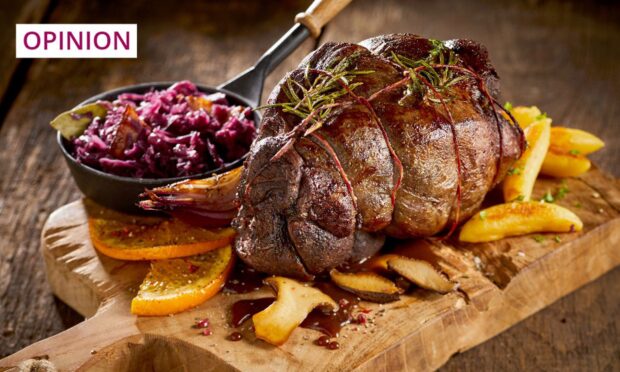This week (Nov 6-12) is Great British Game Week, and for BASC and the shooting sector it is a fantastic opportunity to showcase Scotland’s natural and wild larder.
Game is gaining popularity. In fact, the British game market has grown 7% since 2018.
Venison and other game are not only seasonal at the moment and nutritious, but also exceptionally sustainable, as they represent the epitome of free-range meat. While those within the shooting and deer stalking community already recognise these advantages, Great British Game Week serves as a platform to introduce the concept of game meat to people who may have never encountered it before. This expansion in awareness is crucial for the sector, as it plays a pivotal role in fostering new markets and securing the future of shooting and conservation.
Many individuals are discouraged by the misconception that preparing or cooking game is challenging. However, this no longer holds true, as both butchers and supermarkets now offer a wide variety of pre-prepared game meat cuts or prepared items, such as pies and sausages.
Importantly, it is all versatile and easy to use. Substitute beef mince in a lasagne with some venison mince for a change. In your air fryer, you can make spicy pheasant goujons by taking pheasant breasts, dipping them in a beaten egg wash, then rolling them in cornflour and spices. Simple recipes are often the best.
Whether it’s grouse, pheasant or partridge, there is an extensive range of oven-ready, prepped game birds available these days, making the cooking process truly enjoyable. If you do want to get hands-on, the preparation of the bird is highly rewarding, completing that entire field to fork journey.
Aside from low food miles, game and venison are renowned for being low in fat and high in protein. In comparison to other sources of protein, they are lean and healthy, with essential nutrients such as iron, zinc, and B vitamins, making it a healthy choice for those who seek a nutritious and low-fat protein source.
Game and venison have a depth of flavour that is distinctive, with a rich, earthy taste that can be attributed to the animals’ wild, natural diet. Wild deer and gamebirds enjoy a varied, foraged diet of wild berries and insects, as well as an abundance of free-range exercise across moorlands, glens and open lowland farmland. This uniqueness sets game apart from traditional meats like beef or pork.
Support the rural economy with your knife and fork
BASC constantly lobbies and urges policymakers to do more to help people access wild food and drive down food miles. We want to see greater emphasis on recreational deer hunters being provided with community deer larders, offering an environmentally-friendly and sustainable source of wild food on their doorsteps.
The work of the countryside doesn’t stop there: game and venison are leading the way in tackling food poverty in Scotland. BASC works with the Country Food Trust, which provides nutritious meals to over one million people in need, utilising donations of game and venison from various land managers and estates across the UK.
I would encourage you, irrespective of whether you have before, to buy game from one of the north and north-east’s fantastic game dealers or butchers this week
They believe that everyone deserves access to healthy and nourishing food, and we are committed to helping make this a reality through our efforts, having a positive impact on the lives of those who are struggling with food poverty and insecurity. The Country Food Trust has already donated over 2.8 million meals to people in need since its inception in 2015.
Great British Game Week has such a positive story, showcasing the very best of Scotland’s abundance of excellent local food, but also helping to provide rural livelihoods and tackle food poverty.
I would encourage you, irrespective of whether you have before, to buy game from one of the north and north-east’s fantastic game dealers or butchers this week. Support the rural economy with some beautiful local game or venison, because, rest assured, you won’t be disappointed.
Peter Clark is Scotland director for the British Association for Shooting and Conservation (BASC)


Conversation